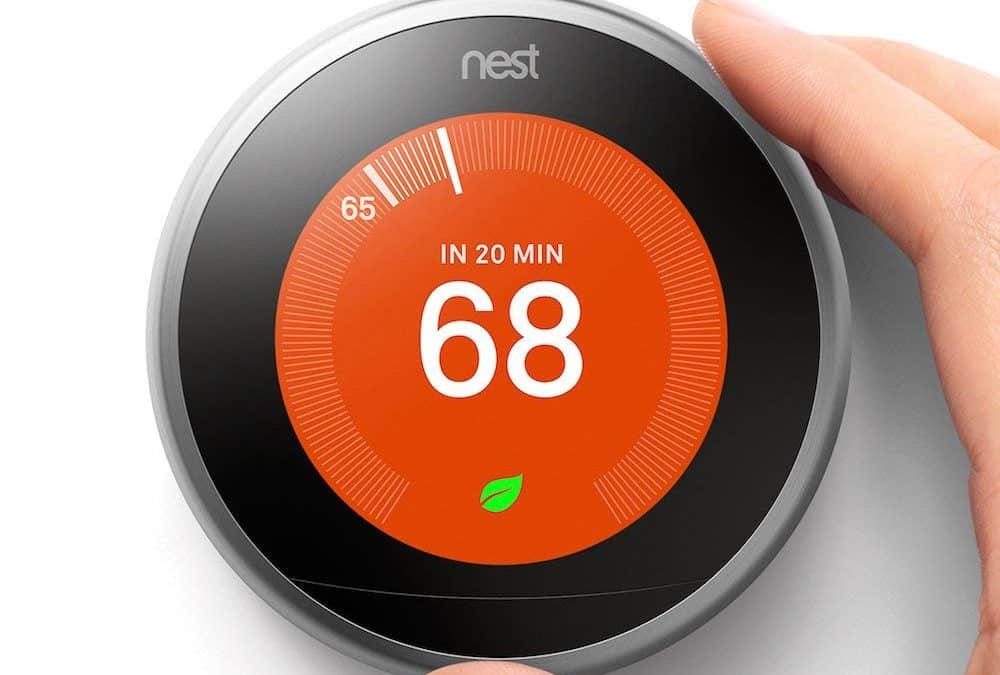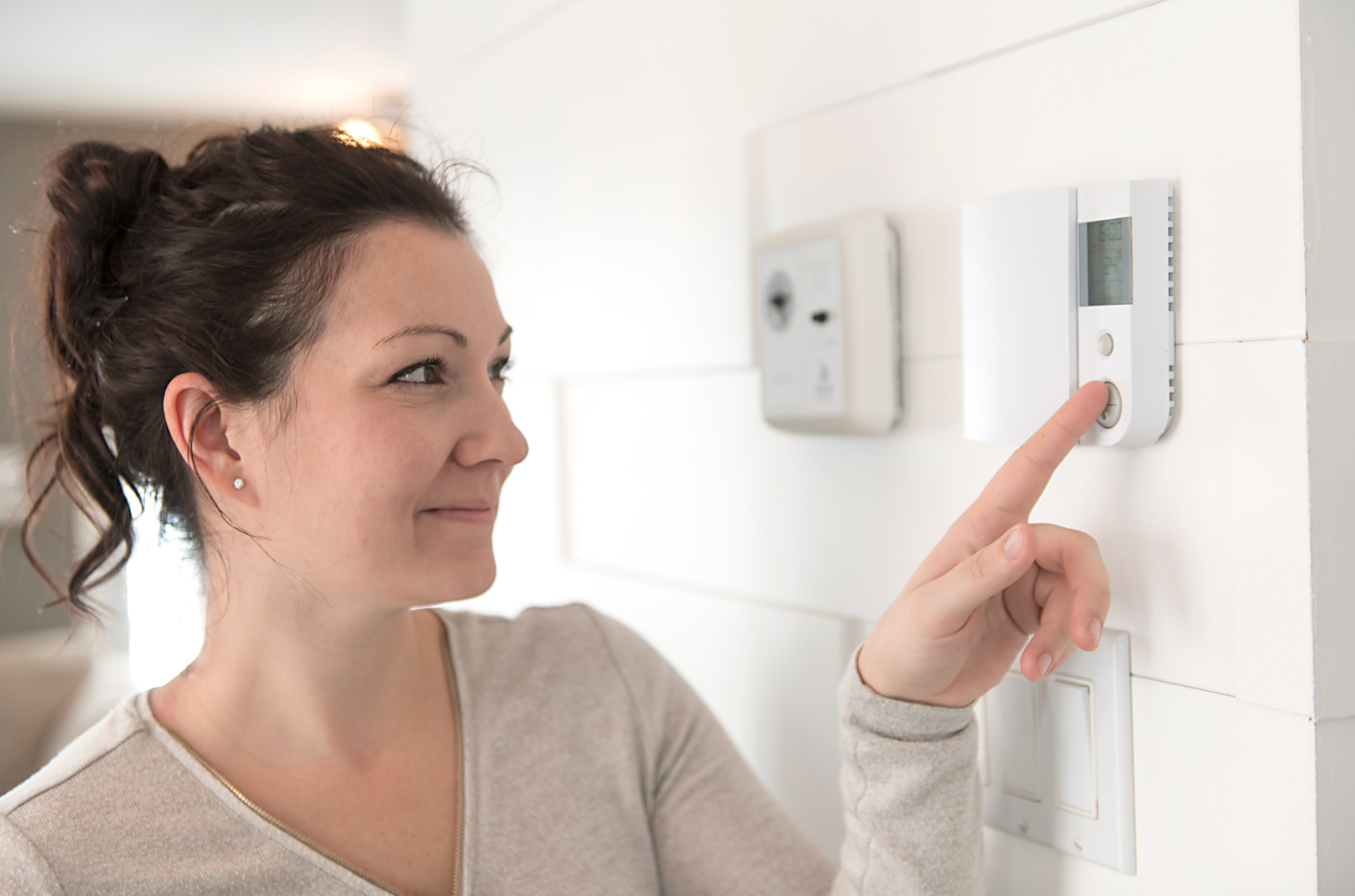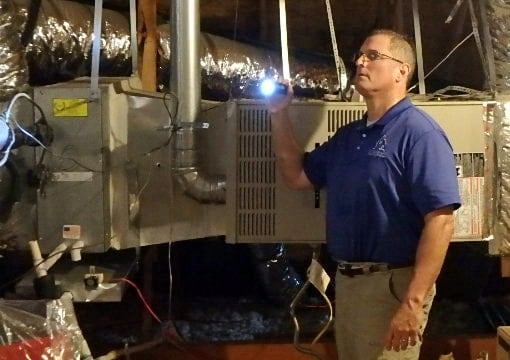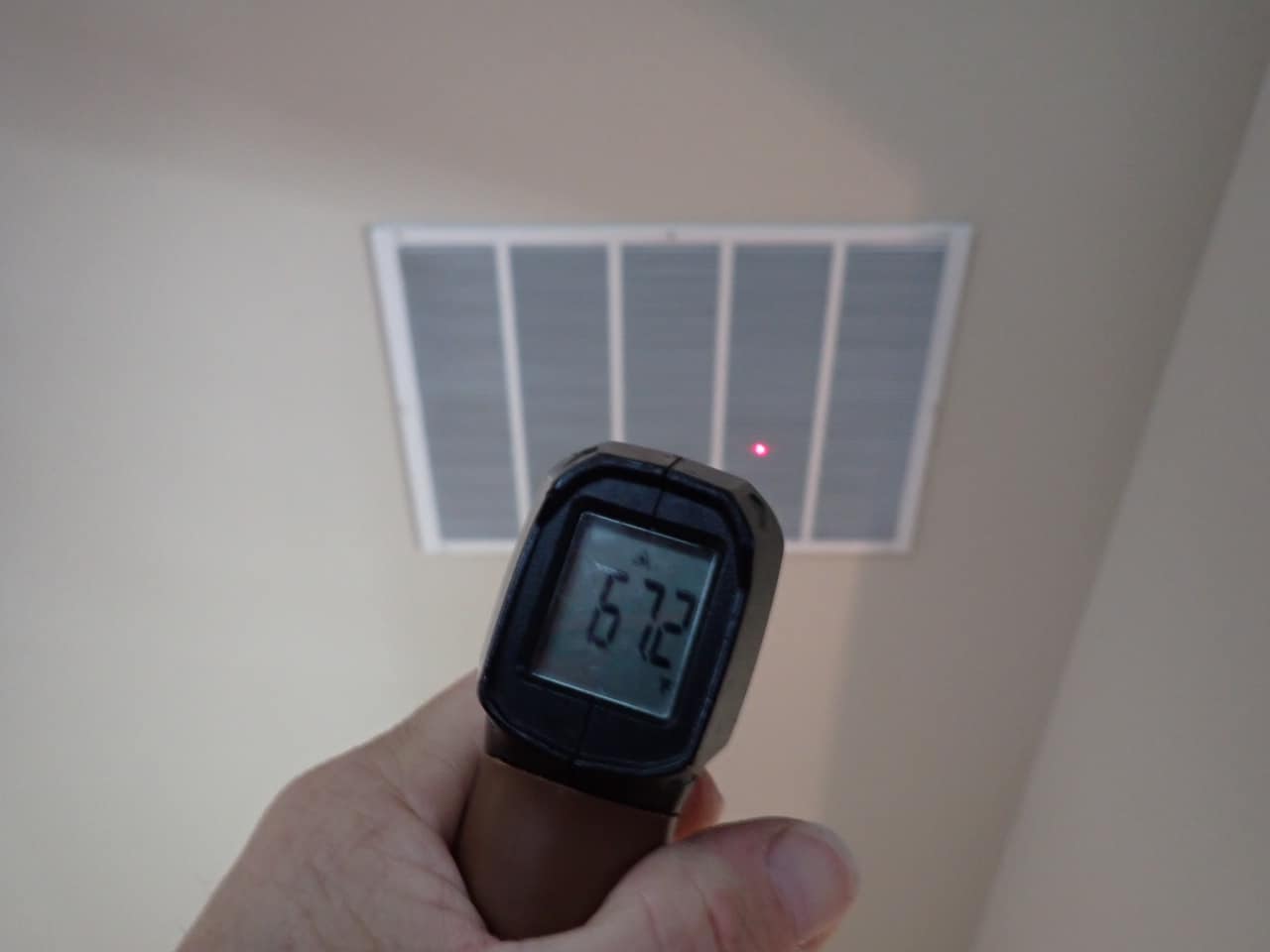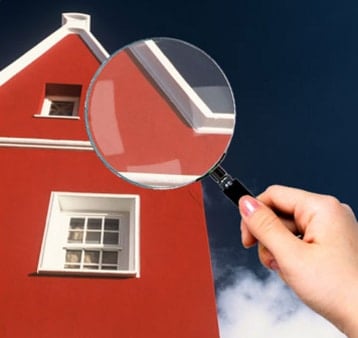Talk with any builder, home contractor, or home inspector for long and you’ll likely hear the term HVAC come up. HVAC is an abbreviation for heating, ventilation, and air conditioning. An HVAC system is the integrated ecosystem of a home’s heating and air conditioning equipment connected through a complex network of pipes, ducts, and electrical components and usually operated through a central thermostat. And it’s one of the most important systems in any home: It keeps the home warm in the winter and cool in the Texas summer heat. It also maintains indoor air quality and removes excess moisture by circulating air within the home and exchanging it with the air outside. Ideally, this all takes place with high energy efficiency to reduce cost and environmental impact.
HVAC systems are complex. Repairs and replacements can be costly. So obviously, when you’re considering making an offer on a new home, it’s essential to understand how well its HVAC system performs. Evaluating it is a major element of every home inspection, but you should be aware that there are limits to what a home inspector can evaluate and what they’re required to inspect by the Texas Real Estate Commission (TREC). Here are three important things to understand.
1. Home inspectors are generalists.
The systems and components in even the smallest of homes are complex. Home inspectors must know a lot about how each works, but they’re not expected to be an expert in any one system or component. They are trained to evaluate the overall condition of a home through a “limited visual survey and basic performance evaluation” as described in TREC’s Standards of Practice.
An experienced home inspector with a proven track record, however, brings to the table a depth of knowledge learned in the field, enabling him to identify more defects and provide you with more information than most new inspectors will. He will also be clear about what he can and can’t evaluate in detail, so you can seek additional information if needed before making an offer. This is invaluable when it comes to inspecting something as complex and expensive as an HVAC system.
2. They can’t inspect what they can’t see.
TREC requires home inspectors to visually inspect “accessible” systems or components. This includes elements that are accessible from the attic or crawl spaces — for example, ducts and vents. Some elements of an HVAC system, however, are hidden under floors or inside walls — for example, pipes and electrical components. An inspector can’t visually evaluate their condition and thus are not required to inspect or comment on them.
An experienced inspector will go above and beyond. He knows how to read signs that may indicate potential defects in hidden or inaccessible components. And he’ll use a professional-level thermal imaging camera to detect hidden electrical or moisture issues which may be related to the HVAC system. This can give you peace of mind when you are contemplating this important investment.
3. A “basic performance evaluation” can be just that — basic.
At a high level, TREC requires inspectors to operate equipment and appliances in “at least one mode with ordinary controls at typical settings.” TREC does provide a more detailed list of the minimum inspection requirements for specific systems, including the HVAC system. Keep in mind, however, that these are the minimum requirements. The best home inspectors go above and beyond those requirements. They perform more tests, report on more defects, and provide more information in their reports.
The Distinct Roles of a Home Inspector Versus an HVAC Specialist
When you’re in the process of buying a home, understanding the various professionals who contribute to your home’s overall assessment is critical. Home inspectors and HVAC specialists play vital, yet distinctly different, roles in ensuring the systems within your potential new home are up to par. Let’s delve into what separates the responsibilities and expertise of these two crucial experts.
Home Inspector Duties
A home inspector provides a broad evaluation of the physical structure and various systems of a house, from the roof to the foundation. When it comes to HVAC systems, the inspector checks for functionality and general safety. They typically examine the condition of the heating and cooling units, look for visible leaks, test the thermostat, and inspect the overall maintenance of the units. Their approach is more generalist, aiming to identify potential red flags that might warrant a deeper look.
HVAC Specialist Expertise
An HVAC specialist, on the other hand, has in-depth technical training and expertise specifically in heating, ventilation, and air conditioning systems. They go beyond the surface-level examination of a home inspector to carry out comprehensive tests that measure the efficiency, longevity, and capacity of the system. If a home inspector suggests that the HVAC system may have issues, or if the system is old or visually complicated, consulting an HVAC specialist becomes essential.
When to Call an HVAC Specialist
It might be tempting to rely solely on a home inspector’s analysis, but certain circumstances call for the specialized expertise of an HVAC professional. If the home you’re interested in has an outdated HVAC system or the inspector’s report raises red flags, an HVAC specialist can provide a more detailed assessment. They can give you an accurate estimation of repair or replacement costs, which is crucial for negotiating the home’s price. Similarly, if you’re planning for a high-efficiency HVAC system installation, you’ll need a specialist to guide you through your options and requirements.
Ultimately, recognizing the distinct roles and capabilities of home inspectors and HVAC specialists will ensure a thorough evaluation of a property’s HVAC system, helping you make an informed decision and investment in your future home.
Maximizing Comfort and Savings: Assessing Energy Efficiency in HVAC Systems
Understanding the energy efficiency of a home’s HVAC system is a crucial aspect of the home inspection process. An energy efficiency assessment determines how well your HVAC system converts fuel into heating or cooling power, directly impacting both your home’s environmental footprint and your utility bills.
What Does An Energy Efficiency Assessment Entail?
An energy efficiency assessment by a home inspector involves a thorough review of the HVAC equipment, including an examination of the system’s SEER (Seasonal Energy Efficiency Ratio) for cooling and the AFUE (Annual Fuel Utilization Efficiency) for heating. These metrics provide a clear picture of the system’s performance in converting energy into climate control. The assessment may also include checking for proper insulation, ductwork integrity, and overall system maintenance.
Impact of Energy Efficiency on Operating Costs and Home Comfort
Energy efficiency plays a substantial role in determining the ongoing operating costs of an HVAC system. The more efficient a system is, the less energy it requires to operate, leading to lower utility bills. In addition, higher energy efficiency contributes to consistent temperatures throughout your home, enhancing overall comfort. A system with poor energy efficiency may lead to fluctuating temperatures and hot or cold spots in different areas of your home.
- Lowered Utility Bills: An efficient HVAC system requires less energy to maintain your desired temperature, reducing your monthly bills.
- Increased Home Comfort: Efficient systems are better at maintaining consistent temperatures and humidity levels, making your living space more comfortable.
- Reduced Environmental Impact: By consuming less energy, efficient HVAC systems play a part in lowering greenhouse gas emissions.
Assessing the energy efficiency of an HVAC system during the home inspection process aids in making informed decisions about a property purchase or identifying areas in your current home that may benefit from energy-saving upgrades.
Keep Your HVAC System Running Smoothly: Expert Maintenance Tips
Regular maintenance of your HVAC system is crucial for ensuring its longevity and efficiency. Home inspectors often emphasize the importance of a well-maintained HVAC system to prevent unexpected breakdowns and costly repairs. Here are some expert-recommended maintenance tips to help keep your HVAC in top condition.
Daily and Weekly Preventive Measures
To ensure your HVAC system operates optimally year-round, incorporate these simple checks into your routine:
- Listen for any unusual noises coming from the HVAC unit while it’s running.
- Keep the area around your outdoor units clear of debris, such as leaves and twigs, to maintain proper airflow.
- Regularly replace or clean your air filters to improve air quality and system efficiency.
Monthly HVAC Maintenance Tasks
Besides daily attention, your system needs monthly care:
- Inspect insulation on refrigerant lines leading into your house. Replace it if you find any damage.
- Clean the drain lines to prevent blockages and water leaks, which could lead to mold growth or water damage.
Seasonal Upkeep for Optimal Performance
At the start of heating and cooling seasons, perform these maintenance routines:
- Spring: Schedule professional service to inspect and tune-up your AC unit before summer.
- Fall: Have a technician check your heating system to ensure it’s ready for the colder months.
Annual Professional HVAC Inspection and Maintenance
An in-depth annual check by a qualified HVAC technician is crucial:
- Have all your system’s electrical components and controls inspected and tested.
- Ensure that the evaporator and condenser coils are cleaned annually to maintain performance.
- Check your system’s thermostat settings and accuracy.
- Lubricate motors and bearings to reduce friction and wear.
- Review the system’s start and cycle to ensure it operatesas it should.
- Examine the ductwork for potential energy losses due to leaks or poor insulation.
By following these home inspector-recommended HVAC maintenance tips, you’ll not only extend the life of your HVAC system but also improve its performance and energy efficiency. Remember to document all maintenance performed for future reference and to maintain your system’s warranty where applicable.
The Importance of Pre-Purchase HVAC Inspections for Aging Homes
The dream of owning a quaint, older home can quickly turn into a costly nightmare without a proper pre-purchase HVAC inspection. Aging properties often come with charm and character but may also harbor hidden issues, particularly with their heating, ventilation, and air conditioning (HVAC) systems. It’s crucial to shine a light on potential problems before sealing the deal.
Unveiling Hidden Issues in Older Homes
Time takes a toll on HVAC systems, and in older homes, these systems might be on their last leg. A thorough inspection can uncover common, yet significant, issues like obsolete components, inadequate insulation, and antiquated ductwork that are more liable to fail or operate inefficiently. This can translate to uncomfortable living spaces and sky-high energy bills if not addressed.
Why a Detailed HVAC Inspection is a Must
Opting for a detailed HVAC inspection by a qualified home inspector with expertise in HVAC areas is a necessity, not a luxury. They’ll check the condition of the furnace, the air conditioning unit, ductwork, vents, and even the thermostat. The inspection will help you anticipate the need for repairs or replacement, allowing you to negotiate better terms in the home sale or prepare for future expenses.
- Anticipate Major Repairs: Understand the current state and future needs of the HVAC system to avoid unexpected costs.
- Improve Energy Efficiency: Identify inefficiencies to save on energy consumption and costs in the long run.
- Ensure Safety: Verify the safety of the system to prevent problems like carbon monoxide leaks, which are particularly hazardous in older structures.
In sum, an HVAC inspection is an invaluable step when considering the purchase of an older home. By ensuring this crucial system is thoroughly examined by a seasoned home inspector, you’re not only securing your comfort but also protecting your investment.
As a potential home buyer, you should be aware that a home inspector — even one that is highly experienced — likely won’t be an HVAC expert. There are companies that focus on that alone. But he will make sure you have the information you need to understand how well the HVAC system performs, and he’ll recommend further inspections if needed to give you the highest level of confidence in your home-buying decision.
Also, keep in mind that your HVAC system requires regular maintenance just like any other equipment. Here’s a month-by-month guide that will help you stay on top of what you need to do. We hope you find it useful.

